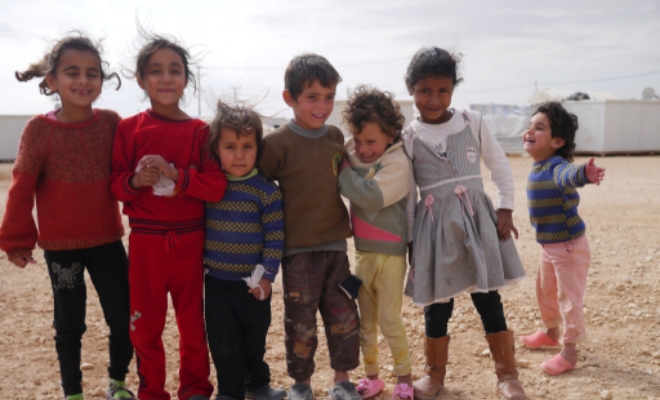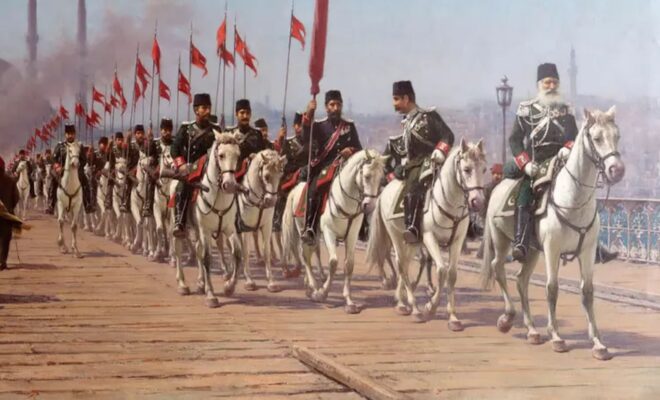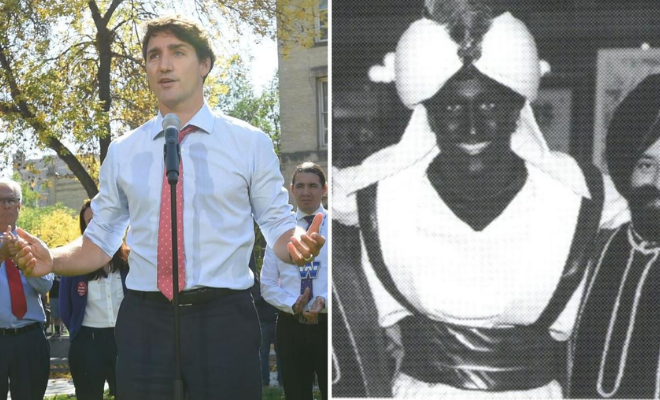Protecting Our Masajid- Toronto’s unfair zoning by-law?

After the brutal attack on the Muslim community in Quebec City, Muslims understandably feel an added sense of duty to protect our places of worship. And while it is essential to resist the bigotry and anti-Islam hatred that is being fed into the Canadian political climate, it is equally important to stay vigilant against more subtle dangers, including those that come dressed in suits and armed with city by-laws, as opposed to wearing bulletproof vests and armed with guns.
In the same week as the attack, hundreds of Muslims – joined by many Imams from the community – protested against a 2013 Toronto zoning by-law that bans the establishment of religious centers in so-called “employment” areas. Toronto City Council argued that such by-laws are necessary to protect the growth of industry in Toronto.
Paul Zuliani, acting director of community planning in the Scarborough-East district, said: “We know we need these lands for employment uses in the future and we’re protecting for that.”

The municipality is also arguing that this law is not discriminatory, saying “This is not about religion. This is not a discrimination issue. This is a city-wide by-law that applies to all sensitive uses — places of worship, schools, some recreational facilities, all types of residential.” Zuliani said, “So they all face the same issue.”
The Reality
While it is easy to take the City Council’s words at face value, there is a deeper problem that is being ignored in their response. It is true that the law applies equally to all religious buildings, but not all religious communities are equally affected by it.
Mr. Zuliani’s comment ignores the fact that there is already a plethora of churches in residential communities, occupying prime real-estate. This means newer religious communities, namely a rapidly growing Muslim community, will find it increasingly expensive and difficult to find a space in residential communities. Said Rageah, Imam of the Sakinah Center, complained that they are being forced “to buy land in an area that we cannot afford.”
It also ignores the unique challenges faced by Muslims even when they can find land in a residential community. In order to have the Masjid built in the direction of the Qiblah, builders need to seek approval from the Committee of Adjustment, where they must argue their case. Not only is this time consuming, but the Committee also solicits input from local residents of that community, which gives a vehicle to those who oppose Islam to spout their bigotry in the public sphere. This exposure to bureaucracy and potential bigotry needs to be confronted again and again, as each Masjid is viewed individually.
Forcing Masajid into residential communities causes additional friction between Muslims and their non-Muslim neighbors, as the amount of parking space required for Friday prayers or Taraweeh can create conflicts at times.

Imam Said Rageah meeting the Press
Barely Concealed Bigotry
Even after all of this is achieved, there is no safe-guard against new potential abuses. In Quebec – the province known for having the sharpest increase in hate crimes against Muslims (even before Bissonnette’s attack) – the government was accused of trying to shut down Masajid built in residential areas without the right permits.
During Ramadan last year, in the Mascouche suburb in north Montreal, inspectors were sent to an Islamic community center (that was not designated as a place of worship) to find “illegal” activities (such as acts of worship). They found 20 men praying, and therefore declared the building to be an “illegal place of worship.”
Citing its own zoning by-law, the suburb revoked the center’s operating permit; their argument was that by not preventing people from praying in the building, the center was effectively a Masjid. The suburb’s case, in the end, was overturned in court.
Similar cases have occurred to Muslim communities in the boroughs of Shawinigan, Mascouche, Terrebonne, Saint-Lambert, and a number of other Montreal boroughs, all targeting existing or new Masajid.
The real issue in all of these cases is the fact that suburbs are abusing the by-laws to specifically prevent the building of Masajid in the community; otherwise there are plenty of Catholic churches that already operate in those communities.
This is not just restricted to Quebec either, rather those who have taken it upon themselves to try to diminish the light of Allah (swt) by attacking His Houses of worship have consistently used this tactic, whether in Camden, Australia, or New York. Masjid bans have been a consistent policy position advocated by the enemies of Islam.
All of this is a reminder of how vital it is for Muslims to remain vigilant in protecting our communities from bigotry, and to strengthen our connection with the Houses of Allah (swt).
While there may be reasonable concerns about the building of religious institutions in certain areas, Muslims need to be actively opposed to allowing bureaucratic indifference or bigoted hatred damage our community. We must demand that City Councils prove to the community that establishing a particular Masjid harms the urban planning of that area; the onus is on the municipality to demonstrate their claim of harm, and not on the Masjid to prove that there is no harm being inflicted.
We also must demand transparency from City Councils regarding exceptional permits delivered by them that violate zoning by-laws. Permits that violate by-laws may hide an effort to transform a right to establish places of worship into a favor granted only based on political connections and personal benefits.
Even if a City Council is sincere in accommodating us, our continued pressure will ensure that they remain sincere.

Strengthening our ties to the Masjid
In the face of this opposition, Muslims have both a religious obligation and a strategic imperative to deepen our understanding of the role of the Masjid.
Through the Mercy of Allah (swt), we now have close to 200 Masajid in Canada, which are mostly focused on housing ritual prayers and occasionally having some circles of knowledge for the community. We need to ask ourselves: what was the role of the Masjid during the time of the Messenger of Allah (saw)? Beyond the Salah, what was the Masjid used for?
The Masjid was used for sleeping, eating, giving charity to others, seeking judgment, engaging in permissible play and wrestling, treating the sick and wounded, and managing the society’s affairs from the Masjid.
The Messenger of Allah (saw) – in his capacity as the head of state – would rule and manage the people’s affairs from the Masjid; for example, he (saw) would send out expeditions and emissaries, hold prisoners, receive delegations, distribute revenues, review the actions of the Walis (governors of the provinces) and state employees, keep oversight of the affairs of the poor, and educate the Muslims about the rules of their Deen, all using the Masjid as the central focal point of action.
In other words, the Masjid was the center that dealt with all personal acts of worship (‘Ibadaat), transactional affairs (Muamalaat), and state affairs. However, today we see the Masjid only fulfilling one or two of the many roles defined by the Masjid of the Messenger of Allah (saw).
In relation to the youth, we find that the Masjid was a place where the youth could engage in permissible play.
Abu Hurairah (ra) narrated that the Messenger of Allah (saw) and the people of Al-Habasha (Ethiopians) playing (in the Masjid), and ‘Umar was preventing them, so the Prophet (saw) said: “Leave them O ‘Umar, because they are Banu Arfidah,” reported by Ahmad. “Banu Arfidah” here indicates that this was a normal game for those people to play.
By establishing Masajid that are more in-line with the legacy of RasulAllah (saw), we will certainly be better positioned to argue that Toronto City Council and other municipalities will be doing their cities a great disservice by hindering the establishment of Masajid.
For instance, if the Masjid develops strong social programs, such as those targeted at troubled youth, the Muslim community could argue that by preventing the establishment of Masajid in areas of employment, City Council is reducing the number of social programs available to youth, and therefore might be contributing to the spread of youth-related social problems.
Another example of the negative effects of a counter-productive policy towards Masajid would be the reduced opportunities for engagement of the community with other communities in the city. If Masajid are prevented from opening their doors to non-Muslim civic society and providing them with a clear and pure understanding of Islam, we could argue that City Council is harming inter-community relations.

A light in Canadian communities
Most importantly, Masajid that are built and managed upon the Sunnah of the Prophet (saw) will not be a place of concern for those non-Muslims who sincerely seeking to learn about the true nature of Islam and Muslims.
On the contrary, the Masjid will be an asset to their neighborhood, a place where they will find warmth and generosity, a place where they will find allies against injustice, and a place where they can find shelter if they have nowhere else to go.
This is the role of the Masjid in our Deen.
“The Masajid of Allah are only to be maintained by those who believe in Allah and the Last Day and establish prayer and give Zakah and fear Allah alone, for it is expected that they will be of the guided.” [9:18]

Moncton Muslim Association









